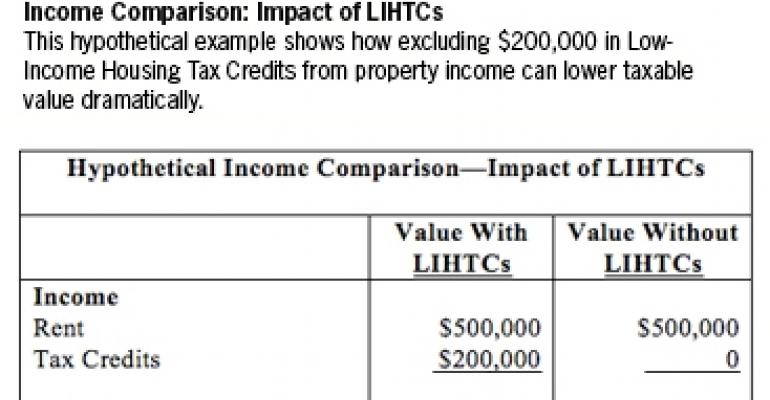The impact of low-income housing tax credits (LIHTC) on the taxable value of real property has been a subject of controversy in Oklahoma for many years. A recent court ruling lays down the law, however, by definitively excluding the credits from calculations of taxable value.

Under the Tax Reform Act of 1986, Congress established the low-income housing tax credit program to encourage private development of affordable housing for people with low incomes.
A developer who commits to operate a property as a low-income housing complex can apply for Low Income Housing Tax Credits under Section 42 of the Internal Revenue Code. The developer then sells the credits to investors to generate equity to construct the project.
The recent case of Stillwater Housing Associates v. Jacquie Rose, Payne County Assessor, et al. (Oklahoma Supreme Court No. 108,682) could result in lower tax assessments for many low-income housing properties in Oklahoma.
In the Stillwater Housing decision, the Oklahoma Court of Civil Appeals issued several conclusions to clarify how low-income housing tax credits issued under Section 42 of the Internal Revenue Code affect taxable value.
Case in point
The Stillwater Housing case arose in Payne County, Okla., where limited partnership Stillwater Housing Associates applied to the Oklahoma Housing Finance Agency for low-income housing tax credits to develop a low-income housing complex. The agency granted credits to be allocated over 10 years in the amount of $455,235 per year.
To generate private equity to complete construction, Stillwater sold its low-income housing tax credits to investors, who became limited partners, and the credits flowed through Stillwater directly to those limited partners. Stillwater received no monetary benefit or cash flow from the tax credits.
Stillwater was obligated under a regulatory agreement to rent the units to low-income residents at restricted rents for 40 years. The tax credits were subject to recapture if Stillwater breached the terms of the regulatory agreement during the first 15 years.
Under Oklahoma law, real property is assessed annually as of Jan. 1 at its fair cash value. That’s the estimated price the property would bring in a voluntary sale for the highest and best use for which it is actually used, or classified for use, during the previous calendar year.
Assessors can use the cost, income or sales-comparison method to estimate fair cash value. Neither the Oklahoma statutes nor the Oklahoma Tax Commission rules prescribe a methodology for valuing low-income housing tax credit properties.
In 2007, Stillwater protested the assessor’s value of the property and asserted a fair cash value of $3.975 million, based upon actual rents. The assessor denied the protest and the developer appealed to the County Board of Equalization. The board instructed the assessor to add $235,347 of tax credits as income under the income approach. As a result, the value increased to more than $8.6 million.
Stillwater appealed the board’s value to district court and both sides filed motions for partial summary judgment on the issue of whether low-income housing tax credits should be treated as property income. The district court ruled in favor of Stillwater and the assessor appealed.
The Oklahoma Court of Appeals affirmed the district court, however, and held that low-income housing tax credits are not income and do not replace income to the real property.
The court also held that the credits are tax benefits belonging to the investor, not a right or privilege belonging to the land, meaning the credits are not within the statutory definition of real property. Finally, the court held that the tax credits are intangibles exempt from taxation under Article X, Section 6A of the Oklahoma Constitution.
The assessor asked the Oklahoma Supreme Court to review the appeals court decision, but that petition was denied on March 28, 2011. When published, the appellate court’s Stillwater Housing decision will constitute persuasive authority in all Oklahoma courts.
What does Stillwater Housing mean for owners of low-income housing tax credit properties? First, because the tax credits are not income and do not replace income to the property, the credits must be excluded from income-based assessments.
Second, because the credits are tax benefits belonging to the investor and not a right or privilege belonging to the land, then credits do not fall within Oklahoma’s statutory definition of real property.
Essentially, regardless of their value to investors, low-income housing tax credits are intangibles exempt from taxation. The Stillwater Housing decision could result in lower tax assessments for many LIHTC properties in Oklahoma.

William K. Elias is a partner in the Oklahoma City law firm of Elias, Books, Brown and Nelson, P.C., the Oklahoma member of American Property Tax Counsel (APTC). He can be reached at [email protected].

